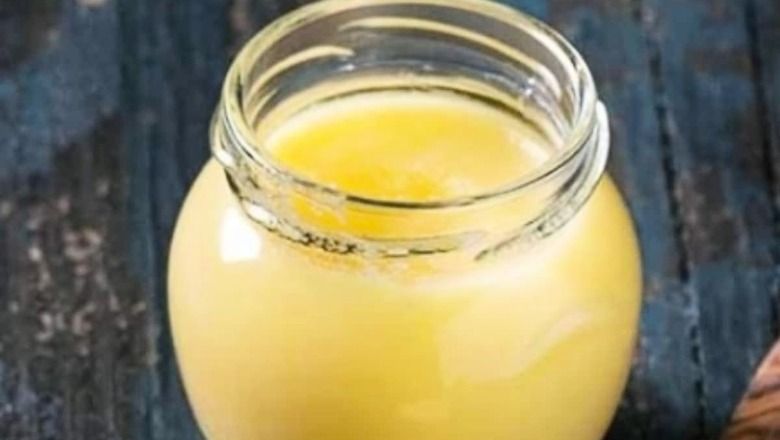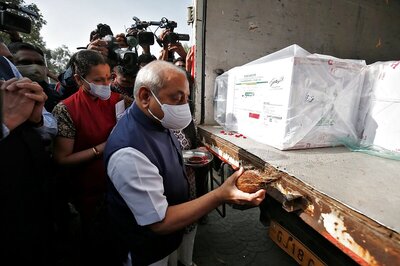
views
Your grandparents (and even parents) might have put a lot of ghee in your food, on your skin and maybe even on your hair for its immense benefits - but it’s likely that you’ve decided to remove it from your diet. This is probably because although Ayurveda recommends the consumption of ghee for its many medicinal benefits, Western science and medicine have not been able to back these claims to the same extent.
In fact, you might even believe that eating ghee can lead to unwanted weight gain and heart disease. And while that may be true for most fats used for cooking - from sesame oil to butter and lard - ghee has benefits which indicate that its inclusion in your diet is more of a good thing than bad.The elixir of life
In Ayurveda, ghee or ghrita is considered to be one of the five elixirs or panchamritas (the others are milk, honey, yoghurt and jaggery or sugar), and is as auspicious as it’s healthy. According to the Sushruta Samhita, an ancient text on medicine, ghee boosts memory and intelligence, aids digestion, heals wounds, reduces inflammation, lubricates the connective tissues between bones and promotes overall health and longevity.
What’s more, unlike olive oil, ghee is a type of fat that people from the Indian subcontinent have been locally producing and consuming for centuries, which, nutritionists like Rujuta Diwekar believe, is the reason why its absence from your diet might actually not be good for your health. It’s a centuries-old healthy practice, so how can it be deemed wrong simply because Western science isn’t able to catch up with its benefits yet?
The following are some benefits of ghee that you can garner from consuming it:
The flipside of consuming ghee
Too much of an elixir can also be poisonous, and consuming too much ghee has its own set of negatives. All said and done, ghee is still a type of fat, and too much of it can lead to obesity, high cholesterol, diabetes and heart diseases. If you’re already obese or have any chronic illnesses, having ghee as a part of your diet may not be an option at all. Too much ghee-soaked or deep-fried foods can lead to indigestion and diarrhea. Ayurveda itself recommends that ghee shouldn’t be given to women early in their pregnancy or to jaundiced patients.
So, proportion is the key you need to keep in mind when adding ghee to your diet. Once or twice a week on top of your roti or paratha might do you good, but adding it to all your meals will definitely not.For more information, read our article on Ghee or butter, which is healthier for you?.Health articles on News18 are written by myUpchar.com, India’s first and biggest resource for verified medical information. At myUpchar, researchers and journalists work with doctors to bring you information on all things health.




















Comments
0 comment